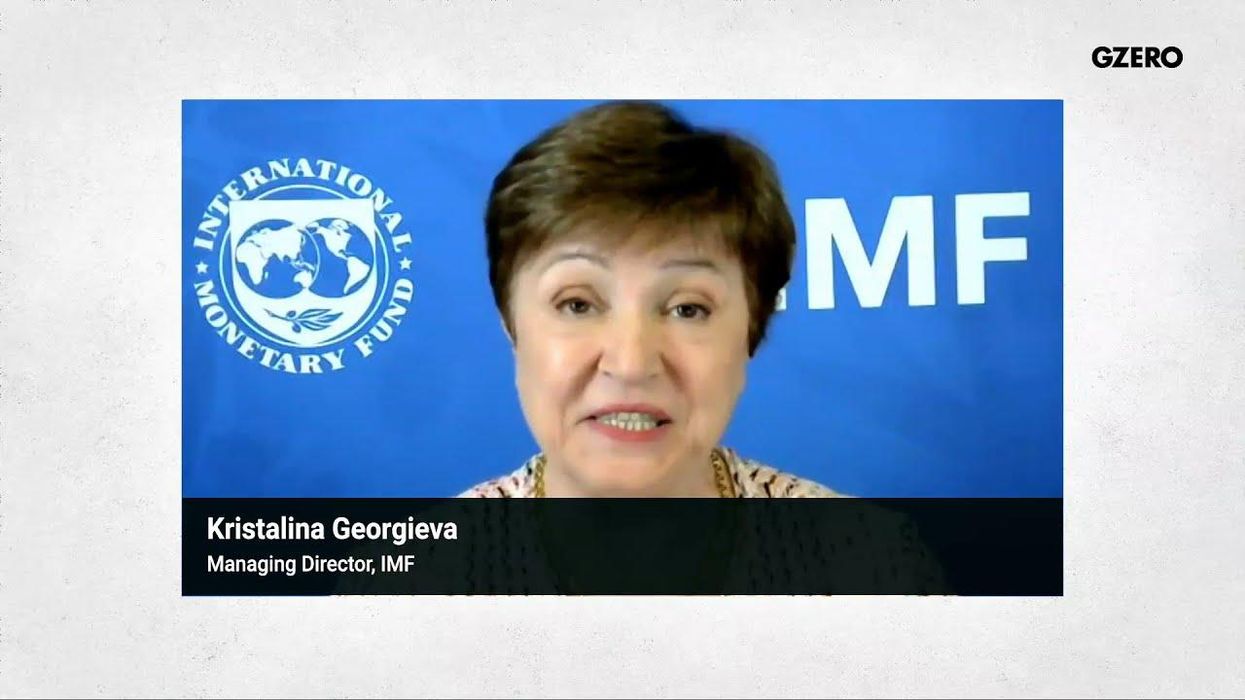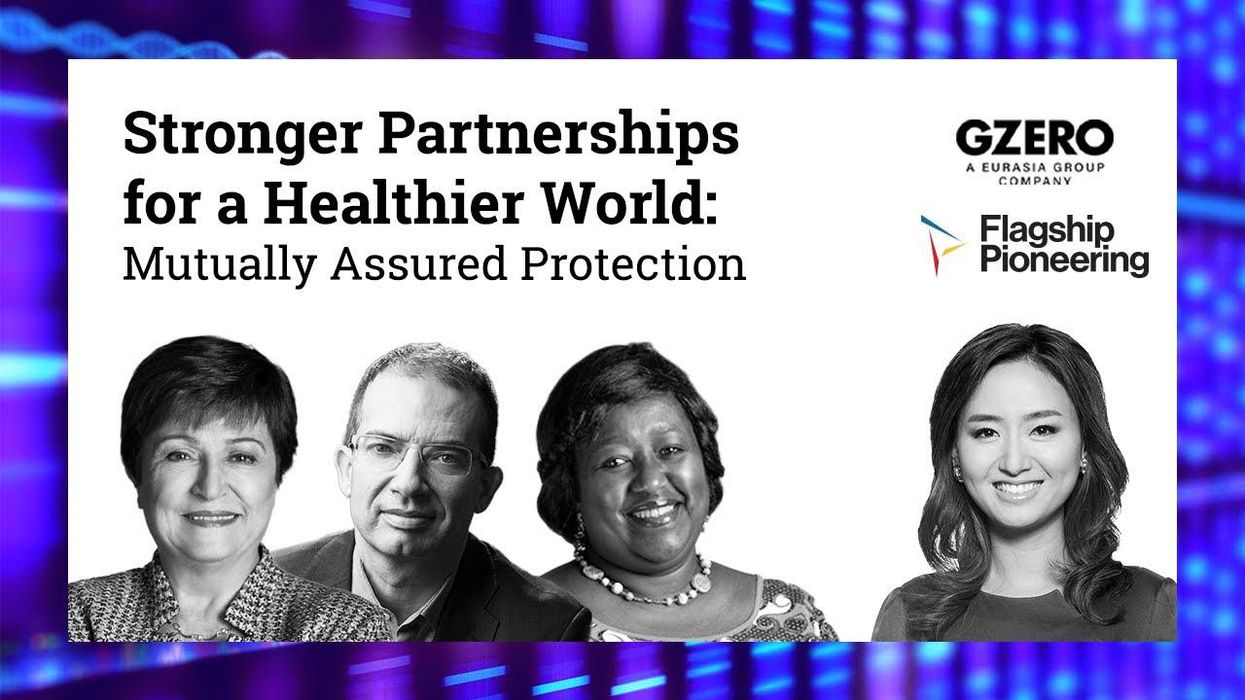GZERO event highlights: IMF chief, G7 vaccine pledges, global health security
For IMF Managing Director Kristalina Georgieva (above), a two-track pandemic means a two-track recovery that'll hurt the entire world in the long run. That's why she anticipates G7 leaders meeting this week will commit to sending about one billion doses of COVID vaccines to the developing world by the end of the year in new financing and shots unused by wealthy nations. Georgieva hopes it'll be a summit that gives all countries "a fair short in the arm, a fair shot at the future." Georgieva was one of many experts who joined this week's two-part livestream discussion about post-pandemic health security hosted by GZERO Media in partnership with Flagship Pioneering, Beyond the Pandemic: A Radical New Approach to Health Security, presented in partnership with Flagship Pioneering.


